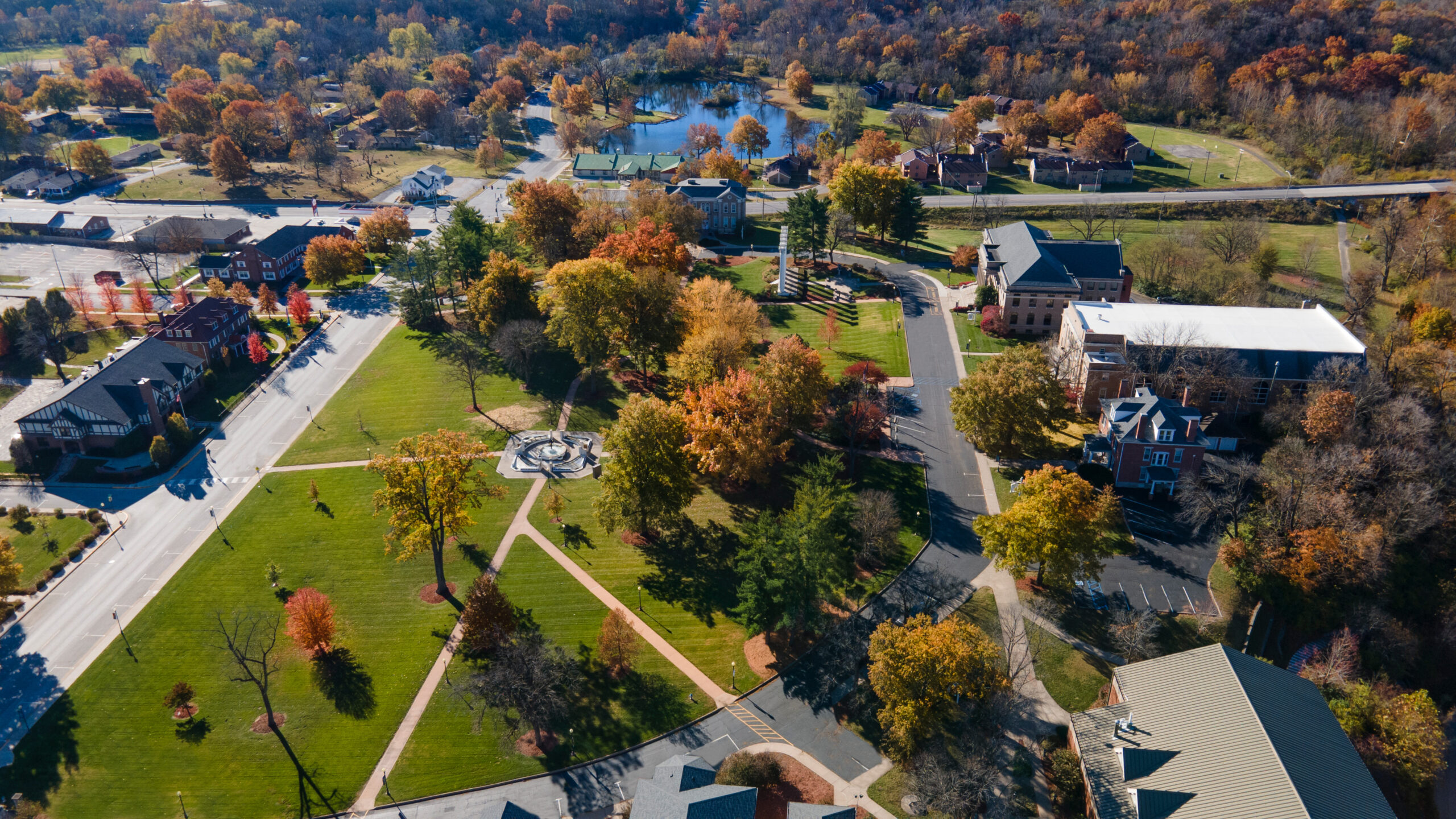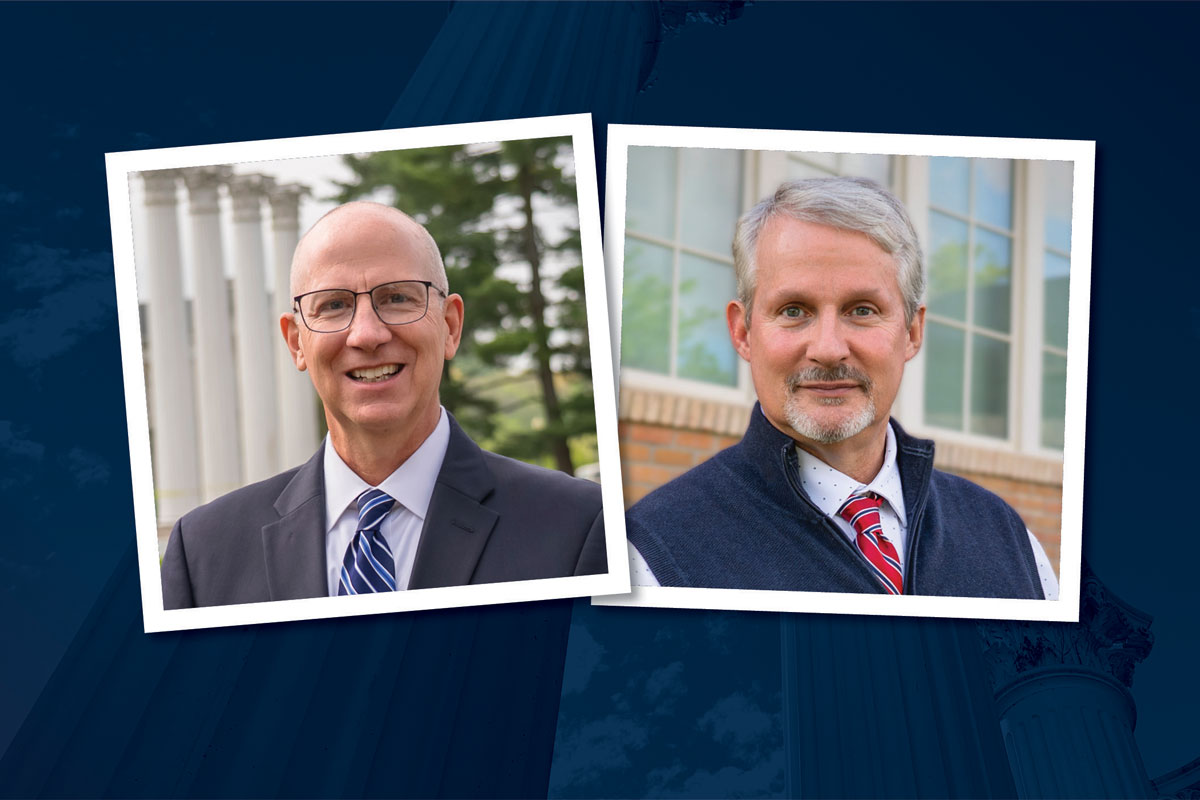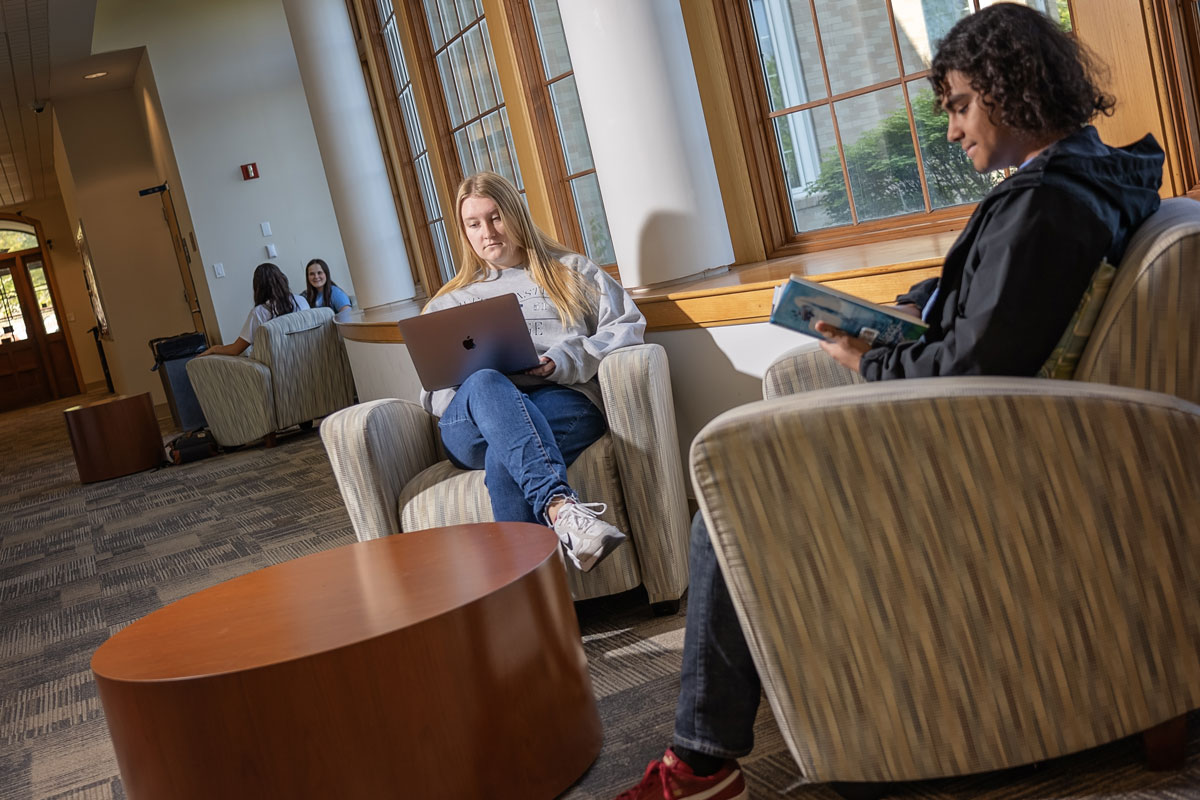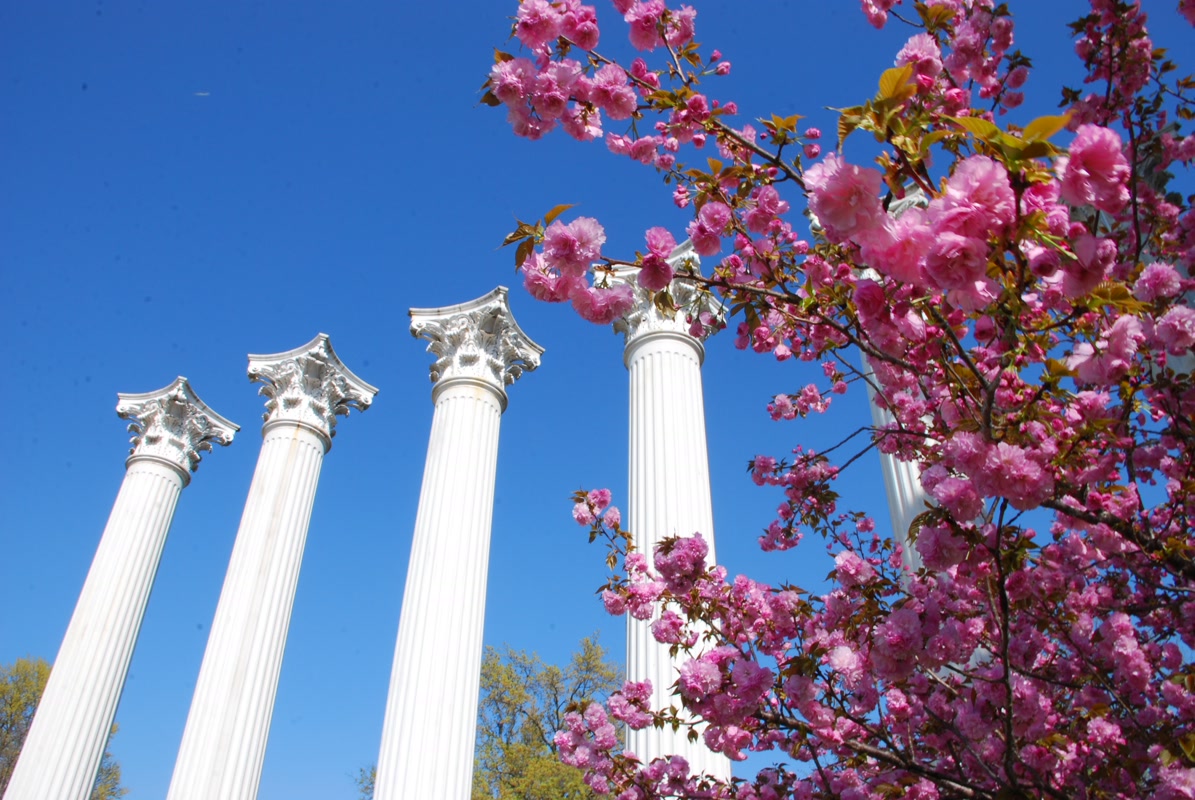In honor of Veterans Day and to commemorate the 30th anniversary of the fall of the Berlin Wall, Westminster College hosted a Cold War Panel at 10 a.m. on Nov. 8 in Hermann Lounge of Hunter Activity Center.
The panel discussion was arranged by Dr. Mark Boulton, Associate Professor of History, and Dr. Tobias Gibson, the Dr. John Langton Professor of Legal Studies and Political Science, who are collaborating on a book project named Cold War and American Life.
President Fletch Lamkin; Fulton resident Jan Herring; Brock Ayers, ’82 ΔΤΔ; and Steve Hardin, ’66 ΦΔΘ; participated in the panel discussion. About 40 students attended the session.
A retired Brigadier General in the U.S. Army, Lamkin completed both Airborne and Ranger School and served in Korea, Vietnam and Germany. Lamkin also served as the dean of the U.S. Military Academy, West Point, in West Point, NY.
Ayers joined Army ROTC while at Westminster and was commissioned in the Army after his graduation. He later became an intelligence officer in the U.S. Army and a National Security Council staff member under former Presidents Ronald Reagan and George H.W. Bush.
Herring joined the U.S. Marines before working as a CIA weapons and technical analyst.
Like Ayers, Hardin joined the Army ROTC program at Westminster while he was a student. Hardin completed two tours in the Vietnam War before joining the 160th Special Operations Aviation Regiment.
After they were introduced, each panelist discussed their decision to join the military and how the Cold War affected their years of service.
Ayers, in particular, pointed out that students should consider how the Cold War affected how information was communicated. He shared a scenario about a pineapple field in Hawaii where he was stationed immediately following graduation. Owned by Dole Food Company, the field contained a hidden bunker where 800 soldiers suddenly emerged, startling the pineapple harvesters.
Ayers said the field was in a demilitarized zone, and yet the military continued to monitor the area because of potential North Korean threats.
After the discussion, panelists conducted a question-and-answer session.
Gibson noted that the panel seemed to engage the students.
“It allowed our students to understand history from alumni and friends of the College who helped make history and who played roles in defeating the post-war specter of global communism.”
A separate Cold War Panel took place on campus at 1 p.m. in Hermann Lounge with representatives from McKendree University in Lebanon, IL; Tusculum University in Tusculum, TN; University of Wisconsin-Eau Claire and Dakota State University in Madison, SD. The discussion centered on Civil Rights, common fears during the Cold War, free speech and how sports such as football increased in popularity during the era.
Sarah Rummel Backer is the Director of Media Relations and Senior Writer at Westminster College in Fulton, Missouri. A proud Westminster graduate, Sarah has more than 20 years of experience in marketing and strategic communications in the areas of higher education, medicine, agriculture, and the private business sector.






